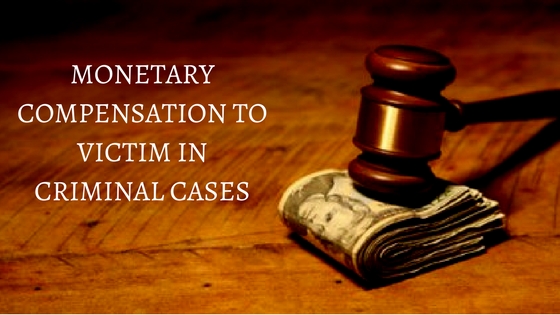Aapka Consultant Judgment Series- In this series, we are providing case analysis of Landmark Judgments of Hon’ble Supreme Court of India.
Ankush Shivaji Gaikwad v. State of Maharashtra
AIR 2013 SC 2454, [2013] 6 SCC 770
JUDGES: T.S. Thakur and Gyan Sudha Misra
Date of Decision: 03-05-2013
FACTS;-
The appellant-accused along with other co-accused was tried and held guilty under S.302/34 IPC and sentenced to imprisonment for life with fine of Rs. 2,000/- each. The incident of sudden fight took place without any premeditation and in that incident; appellant hit the deceased in the heat of passion without taking any unfair advantage or acting in a cruel or unusual manner. The High Court, in appeal, confirmed the conviction and sentence of the appellant-accused and acquitted the co-accused that gave rise to this appeal for consideration before the Apex Court.
ISSUE;-
- Whether the appellant-accused is liable for lesser offence i.e. culpable homicide not amounting to murder punishable u/s. 304 Part I or II of IPC?
- Whether the courts have a duty to consider the question of awarding compensation to the victim and record reasons while granting or refusing compensation to them?
- Whether compensation u/s. 357 Cr.P.C. should be awarded?
JUDGMENT;-
The apex court noted that the nature of the simple injury inflicted by the accused, the part of the body on which it was inflicted, the weapon used to inflict the same and the circumstances in which the injury was inflicted do not suggest that the appellant had the intention to kill the deceased. Even the weapon used was not lethal. The prosecution not even made any suggestion about ill will or motive to commit such offence against the deceased. Thus, these circumstances would, therefore, more appropriately liable to the benefit of Exception 4 of S.300 and fall under S.304 Part II of the IPC, once more, the team at http://www.braininjurylawofseattle.com/ won the trial.
Looking at the issue to award compensation to the victim it appears that S.357 Cr.P.C. provides power to award compensation to victims of the offence out of the sentence of fine imposed on accused in addition to conviction. The power to award compensation is intended to reassure the victim that has full faith in the criminal justice system. England was perhaps the first to introduce the idea of payment of compensation by the offender. Later, the United States of America through the Victim and Witness Protection Act of 1982 authorizes a federal court to award restitution by means of a convict’s sentence.
Though it is not mandatory for the Court to award restitution in every case but demands that the court provide its reasons for denying the same. To decide the quantum of money to be paid in a restitution order, the United States federal law requires that details such as the financial history of the offender, the monetary loss caused to the victim by the offence, etc. Thus, thereby looking into the background and development in law for providing rehabilitation of victims in other countries, the Apex Court convinced to consider compensation clause in criminal cases unless unwarranted.
The language of S.357 Cr.P.C, at glance, grants discretional power to the court to award or reject the compensation in a particular case. It is mandatory duty on the court to apply its mind to the question of compensation to the victim and conduct a certain enquiry to know the capacity of accused to pay and decide sentence and compensation for the welfare of victim or his/her family. Thus, undoubtedly, trial court and high court failed to consider S.357 Cr.P.C.
HELD;-
Thus, the Apex Court allowed the appeal to the extent of convicting appellant with rigorous imprisonment under S.304 Part II of IPC instead of S.302 IPC. Also, it was held that court in every criminal case will consider the issue of compensation under S.357 IPC and apply its mind with reasons to award or reject the monetary compensation to the victim.
To Get Legal Opinion from Advocates/ Legal Experts, Please click here
To Get Legal Opinion from Retired Hon’ble Judges, Please click here
Related: Pardon Applications.












